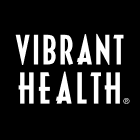
Heart Smart - Caring for your heart
An adult heart beats over 100,000 times and pumps 8,000 liters of blood in 24 hours. The heart sustains us throughout our lives; even when we are sleeping, it never rests!
The heart also has influence over the brain. The human heart, in addition to its other functions, possesses a heart-brain. This heart-brain is composed of about 40,000 neurons that can sense, feel, learn, and remember. The heart-brain sends messages to the head brain about how the body feels. Our heart's rhythm is affected by positive emotions, like being caring, compassionate, or appreciative. This information is sent to the brain, creating harmony in the body. Being harmonious means better mental clarity and decision making. 1

Caring for our heart
Genetics may play a role in our heart health, but it is not what ultimately ignites heart disease. What we eat, the amount of exercise we get, managing stress, exposure to toxins all play a role in developing high cholesterol, high blood pressure, high blood sugar, and heart disease.
Studies show that not smoking, getting at least 3 hours of exercise a week, eating a healthy diet, and not having excessive belly fat will prevent 93 percent of diabetes, 81 percent of heart attacks, 50 percent of strokes, and 36 percent of all cancers.3

Eating to Support our Heart
Research has found that a diet containing soluble fiber, almonds, soy, and plant sterols has benefits effective in lowering inflammation and homocysteine. Homocysteine can contribute to arterial damage and blood clots in your blood vessels. Which is a marker for heart disease.4
Heart-healthy foods
Whole grains appear to lower cholesterol and systolic blood pressure, as well as a lower risk of heart disease.
Berries may reduce risk factors for heart disease, being rich in antioxidants.
Healthy fat such as avocados and fatty fish and fish oil and aid in healthy cholesterol, blood pressure and heart disease factors
Nuts & Seeds
- Walnuts improve the health of our arteries. almonds aid with the reduction of cholesterol and belly fat.
- Seeds may improve several heart disease risk factors, including inflammation, blood pressure, cholesterol, and triglycerides.
Beans are high in resistant starch and have been shown to reduce levels of cholesterol and triglycerides, lower blood pressure, and decrease inflammation.5
Dark chocolate is high in antioxidants, associated with arterial health. cocoa products caused decreases in blood pressure.6
Tomatoes, garlic, and olive oil are all associate have been associated with a lower risk of heart disease. So have a beautiful green salad!
Leafy green vegetables are high in vitamin K and nitrates, which may reduce blood pressure and improve arterial function, lowering the risk of heart disease.7
Edamame contains soy isoflavones aid in decreasing cholesterol levels, also fiber and antioxidants which benefit heart health.
Green tea is high in polyphenols and catechins and may lower cholesterol, and blood pressure.8
Cruciferous vegetables contain high levels of particular nutrients and phytochemicals linked with cardiovascular health benefits.9
Sleep
Getting 7‚8 hours of sleep each night plays an essential role in Cardiovascular health. 10 During REM sleep our heart rate slows, blood pressure drops, and breathing stabilizes. These changes reduce stresses on the heart that occur during the day. 11
Stress reduction
Chronic stress raises the risk of developing cardiovascular disease. It is not just the big stressful situations we may encounter in life; it is also the daily hassles and struggles that negatively affect our heart health. Some of this is due to the fact that stress may also play a part in behaviors that will contribute to heart disease like smoking, not having the time or drive to exercise, and poor eating habits. 12
Laugh and smile!
Research indicates that people with a positive outlook, such as having hope and optimism and being satisfied with their lives, have healthier hearts. These traits were linked to a reduced risk of heart attack and stroke. 13
Quit smoking!
Smoking increases your risk of having a heart attack. If you smoke, you have twice the risk of having a heart attack as a non-smoker. The chemicals in tobacco smoke damage the heart and blood vessel functions. Smoking also increases blood pressure. 14
Exercise
It is important to get exercise and strength training 30 minutes a day. Exercise works like a beta-blocker medication aiding to slow the heart rate and lower blood pressure. 15
Not so lovely "love handles"
Even if you are within the average range weight for your height and frame, having that ‚spare tire‚ or ‚love handles‚ around your middle will put you at greater risk for heart disease. 16
Cholesterol and heart health
Cholesterol is contained in each of your body's cells. Your body uses it to make hormones and substances that help you digest food.17 Cholesterol circulates through your blood. It travels in the bloodstream in two types of packages, called lipoproteins.18
High-density lipoprotein (HDL) cholesterol helps remove cholesterol from your body and protects against heart disease. This is often referred to as "good cholesterol".
HIGH Low-density lipoprotein (LDL) cholesterol "bad cholesterol" is not good for your heart. It can clog arteries and contribute to heart disease and strokes. Narrowed or blocked arteries make it difficult for blood to reach your brain or other organs. This can lead to stroke, heart attack, or even heart failure. 19
One reason you may have high cholesterol could be from your diet, mostly if you eat foods high in saturated fats, like red meat and butter. Another reason may be your thyroid. Too much or too little thyroid hormone can make your cholesterol levels swing up or down.20
Lowering LDL cholesterol
Consumption of plant sterols, viscous fiber, soy proteins, and nuts may help you maintain healthy cholesterol levels. Evidence suggests that plant sterols may reduce blood cholesterol by inhibiting intestinal cholesterol absorption. 21 Cholesterol Blocker provides 500mg of phytosterols per chewable, vanilla-flavored tablet. Phytosterols are fatty alcohols found in plants that can block the absorption of dietary cholesterol when taken with food. Also taking an omega 3, getting plenty of soluble fiber, psyllium, berberine, and garlic may lower LDL cholesterol. 22 It is always important to speak to your healthcare provider before beginning any new supplementation.
- https://www.huffpost.com/entry/heart-wisdom_b_2615857
- https://drhyman.com/blog/2016/04/21/the-biggest-drug-to-reverse-or-prevent-heart-disease-isnt-a-medication/
- https://drhyman.com/blog/2016/04/21/the-biggest-drug-to-reverse-or-prevent-heart-disease-isnt-a-medication/
- https://drhyman.com/blog/2016/04/21/the-biggest-drug-to-reverse-or-prevent-heart-disease-isnt-a-medication/
- .https://www.healthline.com/nutrition/heart-healthy-foods#TOC_TITLE_HDR_17
- https://www.clevelandheartlab.com/blog/the-wonderful-ways-dark-chocolate-helps-your-heart/
- https://www.healthline.com/nutrition/heart-healthy-foods#TOC_TITLE_HDR_17
- https://www.healthline.com/nutrition/heart-healthy-foods#TOC_TITLE_HDR_17
- https://www.ncbi.nlm.nih.gov/pmc/articles/PMC5986475/
- https://www.sciencedirect.com/science/article/abs/pii/S0002914918322136
- https://www.sleepfoundation.org/sleep-deprivation/how-sleep-deprivation-affects-your-heart
- https://www.ncbi.nlm.nih.gov/pmc/articles/PMC2633295/
- https://pubmed.ncbi.nlm.nih.gov/31560385/
- https://my.clevelandclinic.org/health/articles/17488-smoking
- https://www.hopkinsmedicine.org/health/wellness-and-prevention/7-heart-benefits-of-exercise
- https://www.health.harvard.edu/heart-health/research-were-watching-belly-fat-boosts-risk-of-dying-of-heart-disease
- https://drhyman.com/blog/2016/04/21/the-biggest-drug-to-reverse-or-prevent-heart-disease-isnt-a-medication/
- https://drhyman.com/blog/2016/04/21/the-biggest-drug-to-reverse-or-prevent-heart-disease-isnt-a-medication/
- https://drhyman.com/blog/2016/04/21/the-biggest-drug-to-reverse-or-prevent-heart-disease-isnt-a-medication/
- https://www.healthline.com/health/cholesterol-and-heart-disease
- https://www.ncbi.nlm.nih.gov/pmc/articles/PMC4223745/
- https://www.healthline.com/health/high-cholesterol/natural-cholesterol-reducers



